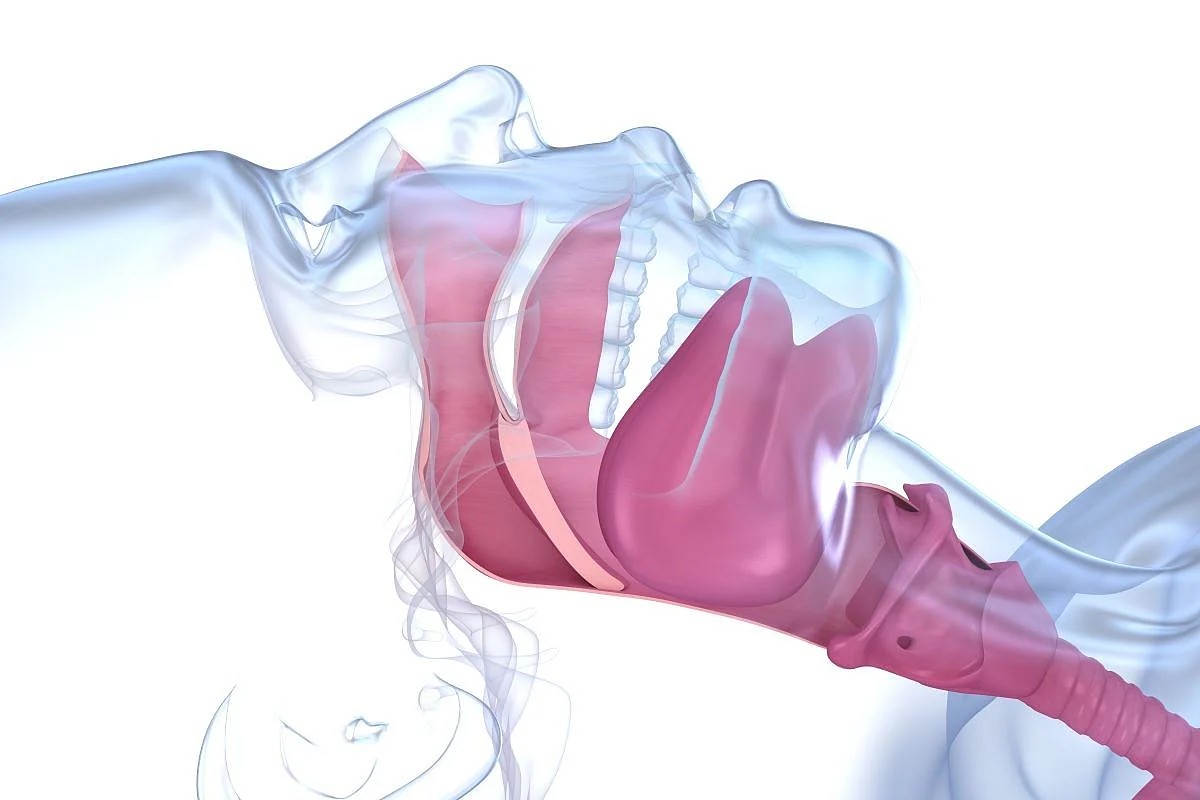Benefits include reduced daytime sleepiness, improved subjective sleep quality, and decreased apnea-hypopnea index
By Lori Solomon HealthDay Reporter
MONDAY, Aug. 11, 2025 (HealthDay News) — Respiratory muscle training through shankh (conch shell) blowing improves outcomes in individuals with obstructive sleep apnea (OSA), according to a study published online Aug. 10 in ERJ Open Research.
Krishna K. Sharma, M.D., from Eternal Heart Care Centre and Research Institute in Jaipur, India, and colleagues randomly assigned individuals with moderate OSA to a sham procedure group (deep breathing exercise; 16 patients) or to a shankh-blowing group (14 patients) for six months.
The researchers found that participants in the intervention group showed greater improvement in sleepiness, with a 34 percent reduction in the Epworth Sleepiness scale (ESS; change, −5.0 points), as well as a significant change in the mean difference of the ESS score (−4.69 points) between the groups. At six months, sleep quality (Pittsburgh Quality of Sleep Index score [PSQI]; change, −1.8 points) and the apnea-hypopnea index (AHI; change, −4.4 events/hour) were improved in the intervention group. The mean between-group difference was −3.1 points for the PSQI score and −5.62 events/hour for the AHI.
“The way the shankh is blown is quite distinctive. It involves a deep inhalation followed by a forceful, sustained exhalation through tightly pursed lips,” Sharma said in a statement. “This action creates strong vibrations and airflow resistance, which likely strengthens the muscles of the upper airway, including the throat and soft palate — areas that often collapse during sleep in people with OSA.”
Copyright © 2025 HealthDay. All rights reserved.








